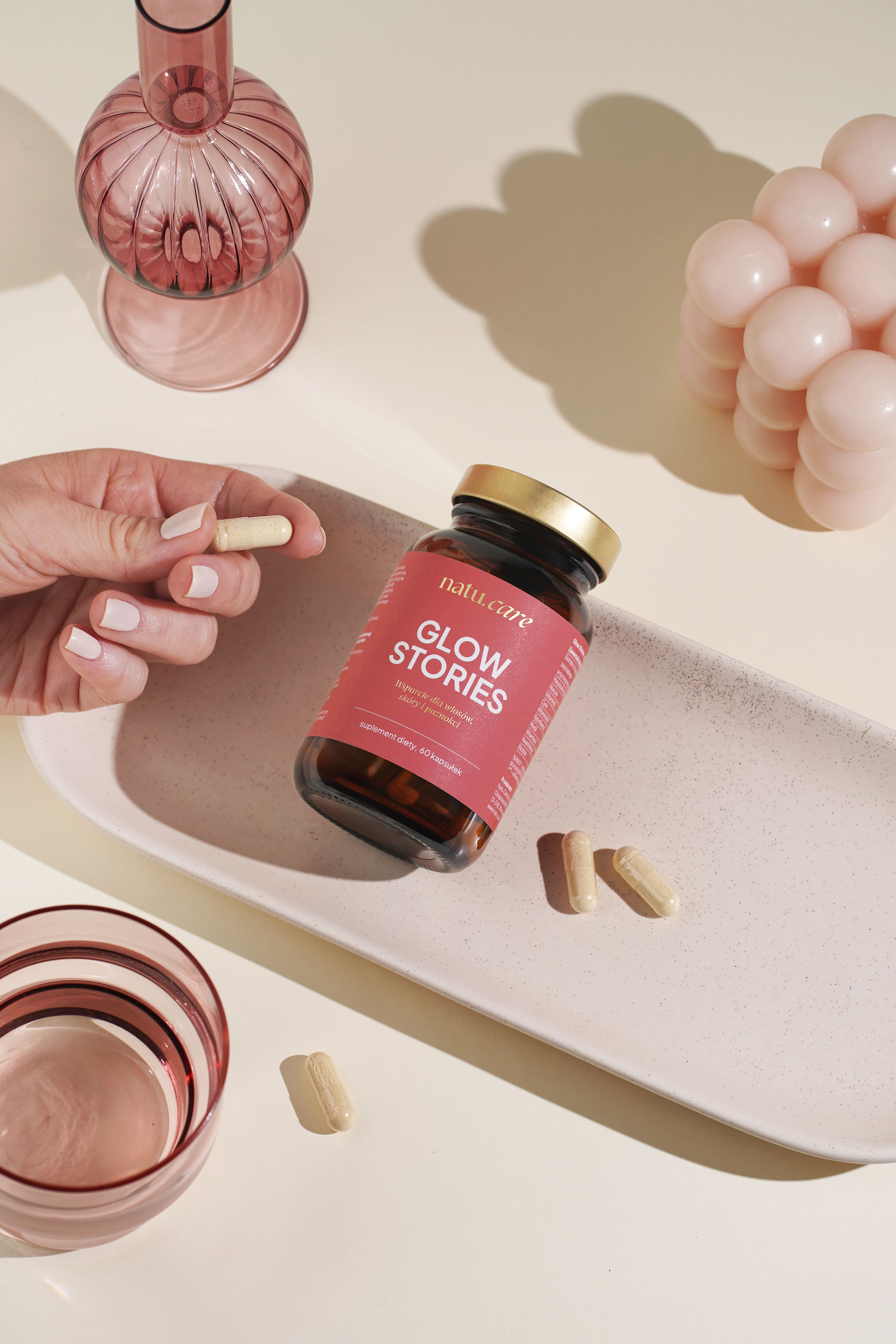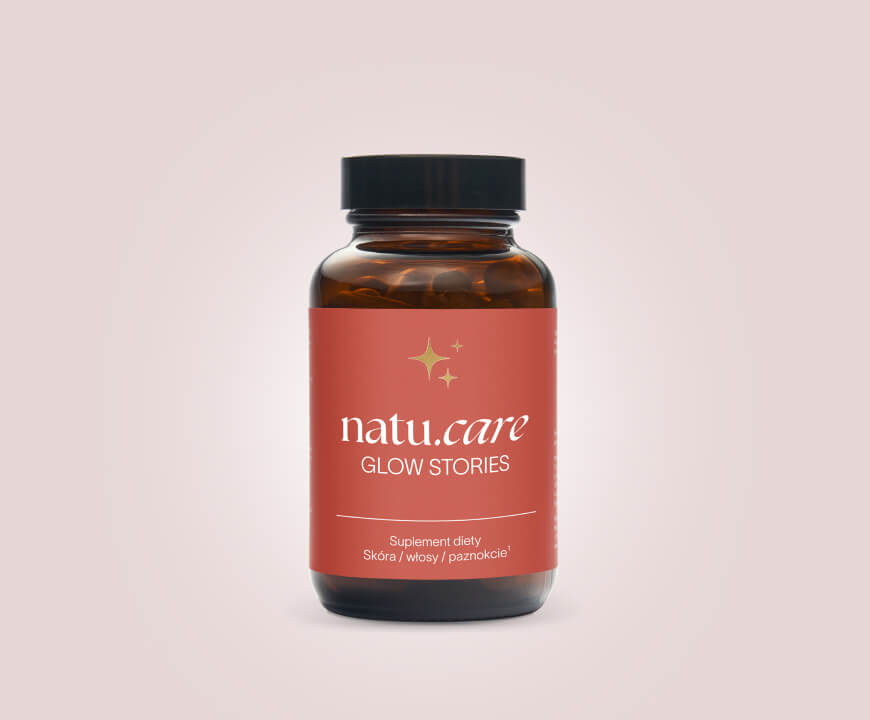Niacin - what it is, effects, dosage, deficiency, excess
Niacin is responsible for nutrient metabolism, cholesterol levels and blood pressure.


Learn more about our editorial process
.

Learn more about our editorial process
.

Learn more about our editorial process
.
Why you can trust us
Articles on Natu.Care are written based on scientific research, data from government websites and other reliable sources. The texts are written in cooperation with doctors, nutritionists and other health and beauty experts. Articles are reviewed before publication and during significant updates.
.Learn more about our editorial process
.Information about advertisements
Content on Natu.Care may contain links to products from the sale of which we may receive a commission. When creating content, we adhere to high editorial standards and take care to be objective about the products discussed. The presence of affiliate links is not dictated by our partners, and we select the products we review ourselves completely independently.
.Learn more about our terms and Conditions
.Two quarters of an hour. That's about how long it will take you to read my article on niacin and prepare a delicious salad from clinical nutritionist Joanna Serwinska-Jani. Below you'll find a great recipe and, beyond that, lots of valuable information about niacin. Action, dosage, deficiency, excess and supplementation of niacin - you will learn all about it.
Description of contents
- What is niacin? .
- Niacin - effects .
- Niacin - dosage .
- Where does niacin occur? .
- Niacin deficiency .
- Niacin - excess .
- Supplementation of niacin .
- Niacin in pregnancy .
- Niacin and alcohol .
- Niacin - drug interactions .
- Summary

Odkryj, co dla Twojej urody może zrobić Natu.Care Glow Stories
Skóra, włosy, paznokcie: Glow Stories
Wesprzyj prawidłowy stan skóry, włosów i paznokci i ochroń komórki przed stresem oksydacyjnym!
Sprawdź cenę
Glow Stories to formuła aktywnych składników, które zostały starannie dobrane wedle najnowszych badań naukowych. Znajdziesz w nich biotynę, cynk i miedź pielęgnujące zdrowie włosów i promiennej cery. Ponadto cynk jest odpowiedzialny także za zachowanie zdrowych paznokci. Mądra suplementacja zadba o Twoje piękno od środka.Julia Skrajda, dietetyk kliniczny
See also:
- Nicotinamide mononucleotide (NMN)
- B vitamins [properties + where they occur] .
- Vitamin B1 (thiamine) [properties + where it occurs] .
- Vitamin B2 [properties + where it occurs] .
- Vitamin B3 [properties + where it occurs]
- Vitamin B5 (pantothenic acid) [what it is + properties and excess]
- Vitamin B6 [where it occurs + deficiency, excess and properties]
- Biotin [what it is + properties and side effects] .
- Biotin for hair [what it gives and effects + ranking]
- Vitamin B9 (folic acid) [what it is + properties and excess] .
- Vitamin B12 [what it helps with + where it occurs] .
- Vitamin C [properties + dosage] .
- Magnesium [what it is in + properties] .
- Best magnesium [ranking + pharmacist's opinion] .
What is niacin?
.
Niacin is an essential B vitamin for the health of our body. This water-soluble compound is responsible for the structure of DNA, the production of good cholesterol, and the metabolism of nutrients. Niacin can be found in chicken breast, tuna, as well as liverand.
Niacin and its derivatives have neuroprotective effects in neurodegenerative diseases such as Alzheimer's or Parkinson's disease.
 .
.
Julia SkrajdaDietitian
.What are the other names for niacin?
.
Niacin is also called vitamin B3 or vitamin PP. Where did it come from? Niacin defines several compounds, which include nicotinamide or nicotinic acidand. Vitamin PP refers to one of the properties of niacin - it is an anti-Pelagra compound.
Pelagra is a dangerous disease to which niacin deficiency leads. It manifests as diarrhoea or skin problems, and in extreme cases even results in deathand. Why vitamin B3? Niacin is simply the third of the B vitamins.
Niacin - effects
.
It is not to the numerous names but to the numerous properties that niacin owes its fame. How does it work?
Research suggests that niacin relieves depression and anxiety. Furthermore, it is used to treat schizophrenia and insomnia, as well as neurosis.
 .
.
Julia SkrajdaDietitian
..
Care for cholesterol levels
.
Niacin is involved in maintaining adequate cholesterol levels in the body. Studies suggest that it reduces 'bad' cholesterol levels by 5 to as much as 25%. What's more, it also affects the production of 'good cholesterol' - it can increase its concentration in the body by 15 to 35%and.
Reduces risk of hypertension
.
Niacin can increase blood flow and reduce blood pressure. In part, it affects blood vessel function. Studies suggest that niacin supplementation, may reduce the risk of hypertension by 2%and.
Promotes treatment of erectile problems
.
The positive effect on blood flow of niacin, translates into supporting the treatment of erectile problems. Studies indicate that a therapeutic dose 1500 mg of niacin per day results in improved sexual function in menand.
Niacin occurs as nicotinic acid or its amide. In the former case, it should be taken in doses of 10-20 mg. In the latter, on the other hand, the limit of 800 mg per day should not be exceeded..
 .
.
Witold Tomaszewskidoctor of medical sciences
.You may be interested in: Zinc - properties, occurrence, deficiency, excess
Influences on skin health
.
Sun damage can lead to skin cancer. Niacin protects our cells, preventing cancer. Research suggests that supplementation with 500 mg (nicotine amide) of niacin daily, reduced the risk of skin cancerand.
Collagen also plays an important role in skin health. You can find out more about it in the following articles:
Controls the function of the brain
.
Research suggests that niacin may support the treatment of some mental illnesses, such as schizophrenia. Nevertheless, further research is needed to confirm these assumptionsand.
Omega acids, especially omega-3 also have a positive effect on brain function. Would you like to learn more about them? Feel free to do so!
Supplement any ingredient when there is a deficiency. In turn, disease symptoms must be treated. Supplementation does not reverse symptoms that have already occurred..
 .
.
Witold Tomaszewskidoctor of medical sciences
.How else does niacin workand?
-
Plays a key role in nutrient metabolism.
-
Promotes cognitive function.
-
Positively influences the function of the nervous and digestive systems.
- .
Provides support for cognitive function.
-
Promotes the treatment of rheumatoid arthritis.
Helps the treatment of rheumatoid arthritis.
-
Prevents coronary heart disease.
EFSA reports that niacin is also responsible for maintaining normal psychological function, conditioning mucous membranes and reducing fatigue.
Niacin is involved in the synthesis of steroid hormones (mainly cortisol and sex hormones). It therefore plays an important role in mood and stress regulation. A deficiency of vitamin B3 can cause concentration disorders, mood changes, as well as depressive or anxiety states..
 .
.
Julia SkrajdaDietitian
.
Glow Stories - for skin, hair and nail health
.Product with high-quality folic acid Quatrefolic®, bamboo shoot extract and ingredients that have a positive effect on skin, hair and nails.
Niacin - dosage
.
The correct dosage of niacin depends on our daily needs. It changes with age. Find out how much niacin you and your loved ones needand.
.
|
Age . |
Daily recommended dose of niacin* . |
|
0-6 months |
2 mg |
|
7-11 months |
5 mg |
|
1-3 years |
6 mg |
|
4-6 years |
8 mg |
|
7-12 years |
12 mg |
|
13+ years old female |
14 mg |
|
13+ years old men |
16 mg |
*Nutrition standards for the Polish population
.
Pregnant and breastfeeding women need more niacin. When you are expecting a baby, take 18 mg of this vitamin daily. Conversely, during breastfeeding your niacin requirement will be 17 mg.
Where is niacin found?
.
The main sources of niacin are poultry, red meat, fish or legumes. Looking for specific products that will provide you with a solid dose of niacin? Here's a table with the 10 products richest in niacinand!
.
17 mg
|
Product . |
Niacin content per 100 grams |
|
Rice bran |
34 mg |
|
Cooked tuna |
22 mg |
|
Sardelles |
20 mg |
|
Cooked skipjack |
19 mg |
|
Fried beef liver . |
17.5 mg |
|
Cooked lamb liver . |
|
|
Cooked lamb liver |
|
|
Dried shiitake mushrooms |
14.1 mg |
|
Anchovies raw |
14 mg |
|
Breaded chicken breast |
13.7 mg |
|
Milled turkey |
12.6 mg |
Niacin can also be synthesised from tryptophan with the help of other water-soluble B vitamins. You will find the most tryptophan in dairy products, soya products and also semolina. To obtain 1 mg of niacin in the body, 60 mg of tryptophan is needed..
Agata GrzelaczykDietitian
Salad with salmon, a tasty way to get a good dose of niacin
.
Clinical nutritionist Joanna Serwińska-Jania has prepared a niacin-rich recipe especially for you. Salad with salmon, pumpkin seeds and egg will be ready in just 15 minutes.
.
What are the necessary ingredients?
.
-
Smoked salmon: 50 g
-
Egg: 50 g (one piece)
-
Spinach: 50 g (two handfuls)
-
Pumpkin seeds: 20 g (two tablespoons)
-
Fresh cucumber: 45 g
-
Red peppers: 57.5 g
-
Olives: 45 g (one handful)
-
Black pepper: 0.3 g (one pinch)
-
Sunflower seeds: 10 g (one tablespoon)
-
Salt: 0.3 g (one pinch)
-
Olive oil: 10 g (one tablespoon)
-
Honey: 4 g (half a teaspoon)
When you have stocked up on the above ingredients, it will be time for kitchen adventures. The salad will be ready in seven easy steps.
-
Rinse and chop the spinach.
- Rinse and chop the spinach.
-
Hard-boil the egg (about 8-10 minutes).
- Cook the spinach.
-
Prepare the salmon into small pieces.
- Prepare the salmon into small pieces.
-
Cut the cucumber and peppers into cubes.
- Cut the salmon into small pieces.
-
Stir together all the ingredients.
-
Prepare the sauce: mix the honey with the oil and season the whole with pepper and salt.
-
Prepare the sauce: mix the honey with the oil and season the whole with pepper and salt.
-
Pour the prepared salad over the dressing and sprinkle with chopped nuts.
- .
Niacin deficiency
.
Niacin deficiency is most common in developing countries. In most cases, it is led to by a lack of a balanced diet. In developed countries, other factors lead to it. Which ones?
Causes of niacin deficiency areand:
-
disorders of the gastrointestinal tract,
. -
alcoholic disorder,
.
-
long-term intake of certain medications (such as isoniazid),
- .
-
Genetic factors,
.
Niacin deficiency is rare. It most commonly affects people with intestinal disorders, alcohol addicts, and patients suffering from Hartnup's disease.
Agata GrzelaczykDietitian
..
Symptoms
.
Niacin is important for the health of our body, which is why its deficiency is quickly signalled. Which symptoms should cause us to be concerned?"
Symptoms niacin deficiencyand:
-
vomiting,
. -
diarrhoea,
- vomiting,
-
fatigue,
.
-
headaches,
.
-
apathy,
- headaches,
-
memory problems,
.
What niacin deficiency leads to, or what is pelagra?
.
An untreated niacin deficiency leads to pelagra in the long term. This disease results in the aforementioned symptoms, such as dementia and diarrhoea. Its characteristic symptom is a dark, thick and scaly skin rash. Moreover, pelagra leads to brain or nerve damage and, in extreme cases, even deathand.
.
Contraceptive pills contribute to the leaching of B vitamins from the body. Mainly niacin and vitamin B1..
 .
.
Julia SkrajdaDietitian
.How to get rid of a deficiency.
Niacin deficiency niacin deficiency is easiest to get rid of by taking supplements. In most cases, a doctor will prescribe people with a niacin deficiency a remedy containing no less than 20 mg of the compoundand.
Slightly different is the treatment of people who have suffered from long-term niacin deficiency. If there has been damage to the body, independent treatment is required.
If there has been damage to the body, independent treatment is required.
Niacin - excess
.
Eating products rich in niacin will never lead to a niacin overdose. An excess of this vitamin can only be caused by excessive intake of supplements. Taking higher doses than recommended by the manufacturer or your doctor is dangerous and leads to symptoms of niacin overdoseand.
Most often, excess niacin taken from the diet is excreted in the urine. However, its overdose from supplements can result in the so-called "flash effect". A tingling sensation and reddening of the skin are the most common of its symptoms..
 .
.
Julia SkrajdaDietitian
.Symptoms
.
An excess of certain substances can be just as dangerous as a deficiency. This is precisely the case with the valuable niacin.
Symptoms niacin excessand:
-
Reddening of the skin,
. -
nausea,
.
-
diarrhoea,
- diarrhoea.
-
vomiting,
.
-
accelerated heartbeat,
- vomiting.
-
Itchy skin,
- Itchy skin.
Niacin supplementation
.
A healthy and balanced diet is the key to adequate niacin levels in the body. Supplementation should be of interest to people who are at risk of niacin deficiency. These include alcohol addicts, people with malabsorption disorders or people with genetic disorders of absorption of this vitamin.
Why niacin?
Why is niacin on prescription?
.
Research suggests that niacin can lead to strokes or liver damage. Therefore, specialists recommend its use only in selected cases. Most commonly, doctors prescribe it to people who cannot take statins but need a remedy to stabilise their cholesteroland.
Niacin is not a supplement, it is an OTC (over-the-counter) medicine..
 .
.
Witold Tomaszewskidoctor of medical sciences
.For how long can you take it?
.
More often than not, we are not talking about supplementation, but about niacin treatment. Therefore, it should be taken for exactly the length of time recommended by your specialist. In turn, for any supplements, it is necessary to follow the manufacturer's recommendations.
Who should not supplement?
.
Before you receive a prescription for niacin, your doctor will take a history with you. Only in this way will he or she be able to be sure that it will be safe for you.
When it comes to supplements, on the other hand, it is not advisable to take them on your own. People who have had problems with stomach ulcers, liver or kidneysand need to be particularly careful.
Niacin in pregnancy
.
Niacin affects the health of any pregnancy. Studies show that its adequate concentration in the body counteracts birth defects of the heart, spine or kidneys in the baby. The daily requirement for niacin increases during pregnancy and is 18 mgand.
Niacin and breastfeeding
.
Niacin is also a key compound during breastfeeding. All the compounds needed for the baby's health must be supplied with breast milk. During breastfeeding ladies should provide their bodies with 17 mg of niacinand.
Note: During pregnancy you cannot supplement niacin. It is recommended that the daily requirement for this compound is met during this period through a balanced diet.
Niacin and alcohol
.
Niacin can react with alcoholic beverages. Consumption of alcohol during treatment or niacin supplementation, can lead to liver damage. It doesn't stop there; liquor of all kinds also increases the chance of possible side effects, such as skin rednessand.
Furthermore, in alcohol-dependent people, the risk of niacin deficiency is much higher.
Niacin - drug interactions
.
Niacin can react with numerous medications. Who should be especially vigilant?
Niacin may interact withand:
-
statins,
. -
anti-coagulants,
-
statins,
- .
-
diabetes medications,
- thrombolytic drugs,
- thrombolytic drugs.
-
medicines for hypertension,
- .
-
zinc,
. -
allopurinol,
.
Note! No one should take niacin on their own. Only a doctor can recommend a healthy and safe supplementation of this vitamin.
See also:
- BBBCream [ranking + reviews] .
- Cerave face creams [products + expert review] .
- Eye cream [ranking + how to choose]
- Anti-wrinkle cream [ranking + how to choose] .
Summary
..From this article remember:
.- Niacin, also known as vitamin B3 or PP, is a water-soluble B vitamin.
- Niacin improves brain function, is responsible for metabolism, and controls cholesterol levels.
- Niacin is a vitamin of the B group.
- Men should take 16 mg of niacin per day, when women only need 14 mg. .
- The richest source of niacin is rice bran. .
- Genetic disorders or cardiovascular problems, as well as alcoholism, lead to niacin deficiency. .
- A lack of niacin in the body results in headaches, fatigue or diarrhoea. .
- An excess of niacin is rare and manifests as reddening of the skin, nausea or diarrhoea.
- It is not advisable to take niacin.
- Niacin should not be taken on its own. .
- Alcohol flushes niacin out of the body. .
- Niacin may interact with some medications.
- Niacin may interact with some medications.
.FAQ
..What is the flush effect and when does it pass?
The flush effect is a temporary bodily reaction that can occur after consuming large doses of niacin (vitamin B3, particularly in the form of nicotinic acid). The flush effect manifests as redness of the skin, a feeling of warmth and itching, among other symptoms. These result from the dilatation of blood vessels and increased blood circulation.
This is a harmless reaction (although it can cause discomfort) and usually passes between 30 minutes and 2 hours after symptoms are observed. If the flush effect persists or worsens, consult your doctor to discuss changes to your supplementation.
If the flush effect persists or worsens, consult your doctor to discuss changes to your supplementation.
.With what not to combine niacin?
.Niacin may interact in harmful ways with certain drugs and substances. The most important of these are:
.Will niacin help with depression?
.Vitamin B3 can be synthesised in the body from tryptophan, an amino acid essential for the production of serotonin, low levels of which are associated with depressive states. Less available tryptophan means less serotonin. Studies show that increased doses of niacin combined with psychotherapy significantly improve the health of patients with depression.
Other studies suggest that some patients with depression have low levels of, among others, vitamin B6 and vitamin B3. However, further research is needed to understand the causes, as deficiencies of B vitamins due to diet are unlikely, and whether supplementation may have a strictly antidepressant effect.
.Who should take niacin?
.Most people take sufficient niacin through a balanced diet. The most important indications for supplementation are:
- vitamin B3 deficiency, .
- disorders of the digestive system and malabsorption, .
- pregnancy and breastfeeding, .
- high physical activity, .
- dermatological diseases (e.g. photoallergic dermatitis), .
- diabetes, .
- hyperlipidaemia and other cholesterol problems, .
Depending on your case and needs, your doctor will prescribe the appropriate dose of niacin and follow these recommendations.
.Are niacin and niacinamide the same thing?
.Niacinamide is a derivative of vitamin B3, which is often found under the name niacin or vitamin PP. From a chemical perspective, it is a combination of two compounds: nicotinic acid and its amide. Niacinamide is commonly used in cosmetology, as an ingredient in anti-wrinkle creams, hand creams or facial treatments, among others.
.Can niacinamide be used with vitamin C?
.If you are using cosmetics with niacinamide you must not combine them with vitamin C in the form of ascorbic acid. Both substances react with each other and can cause irritation, burning and redness of the skin. It is best to separate the application of both substances, e.g. niacinamide in the morning and vitamin C in the evening.
See also: Best vitamin C serums - ranking and effects.
.Does niacin affect heart health?
.Scientific studies have shown that niacin can benefit heart health by lowering levels of bad cholesterol (LDL) and triglycerides, while increasing levels of good cholesterol (HDL). However, the use of niacin for cardiovascular purposes should be monitored by a physician.
.How to take niacin?
.No matter the form (tablets, capsules, extended-release capsules), niacin should be taken with or between meals and with plenty of fluids. Avoid hot drinks and alcohol during treatment. Niacin is best absorbed in the form of nicotinic acid.
..Sources
..See all
.Chen, A. C., Martin, A. J., Choy, B., Fernández-Peñas, P., Dalziell, R. A., McKenzie, C. A., Scolyer, R. A., Dhillon, H. M., Vardy, J. L., Kricker, A., St. George, G., Chinniah, N., Halliday, G. M., & Damian, D. L. (2015). A Phase 3 Randomized Trial of Nicotinamide for Skin-Cancer Chemoprevention. New England Journal of Medicine, 373(17), 1618-1626. https://doi.org/10.1056/NEJMoa1506197
Duggal, J. K., Singh, M., Attri, N., Singh, P. P., Ahmed, N., Pahwa, S., Molnar, J., Singh, S., Khosla, S., & Arora, R. (2010). Effect of Niacin Therapy on Cardiovascular Outcomes in Patients With Coronary Artery Disease. Journal of Cardiovascular Pharmacology and Therapeutics, 15(2), 158-166. https://doi.org/10.1177/1074248410361337
Jonas, W. B., Rapoza, C. P., & Blair, W. F. (1996). The effect of niacinamide on osteoarthritis: A pilot study. Inflammation Research, 45(7), 330-334. https://doi.org/10.1007/BF02252945
Niacin. (2012). In LiverTox: Clinical and Research Information on Drug-Induced Liver Injury. National Institute of Diabetes and Digestive and Kidney Diseases. http://www.ncbi.nlm.nih.gov/books/NBK548176/
Office of Dietary Supplements-Niacin. (n.d.). Retrieved 17 March 2023, from https://ods.od.nih.gov/factsheets/Niacin-HealthProfessional/
Palawaththa, S., Islam, R. M., Illic, D., Rabel, K., Lee, M., Romero, L., Leung, X. Y., & Karim, Md. N. (2022). Effect of maternal dietary niacin intake on congenital anomalies: A systematic review and meta-analysis. European Journal of Nutrition, 61(3), 1133-1142. https://doi.org/10.1007/s00394-021-02731-9
Redzic, S., Hashmi, M. F., & Gupta, V. (2022). Niacin Deficiency. In StatPearls. StatPearls Publishing. http://www.ncbi.nlm.nih.gov/books/NBK557728/
.Ren, X., Yang, Z., Shao, B., Yin, S., & Yang, X. (2015). B-Vitamin Levels in Human Milk among Different Lactation Stages and Areas in China. PLOS ONE, 10(7), e0133285. https://doi.org/10.1371/journal.pone.0133285
Snaidr, V. A., Damian, D. L., & Halliday, G. M. (2019). Nicotinamide for photoprotection and skin cancer chemoprevention: A review of efficacy and safety. Experimental Dermatology, 28(S1), 15-22. https://doi.org/10.1111/exd.13819
Xu, X. J., & Jiang, G. S. (2015). Niacin-responding subset of schizophrenia - a therapeutic review. European Review for Medical and Pharmacological Sciences, 19(6), 988-997.
Zhang, Z., Liu, M., Zhou, C., He, P., Zhang, Y., Li, H., Li, Q., Liu, C., & Qin, X. (2021). Evaluation of Dietary Niacin and New-Onset Hypertension Among Chinese Adults. JAMA Network Open, 4(1), e2031669. https://doi.org/10.1001/jamanetworkopen.2020.31669
Editorials
Meet the team


Fact-checker
Agata Jach is in charge of verifying quoted sources and checking that published content is truthful.
![Vitamin B12 - where it occurs in the diet and in products [table].](https://cdn-resources.natu.care/uploads/1/balanced_diet_nutrition_healthy_eating_concept_food_sources_rich_vitamin_b12_cobalamin_kitchen_table_1_b84f75bda2.jpg)
Find out where vitamin B12 is found and which products will provide you with it.

Vitamin PP also known as niacin or vitamin B3 supports the proper functioning of the body.
![What is NMN? Effects, effects, side effects [supplements].](https://cdn-resources.natu.care/uploads/1/science_background_with_molecule_atom_abstract_structure_science_medical_background_3d_illustration_1_a5ec4d9cec.jpg)
Everything you want to know about NMN: properties, effects, safety and expert opinions.
